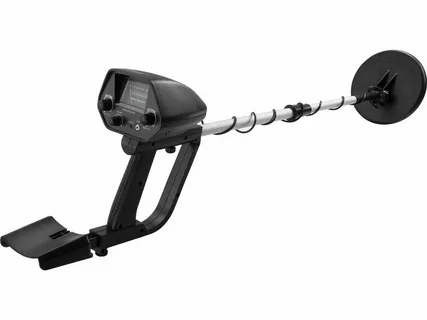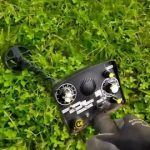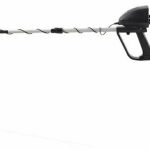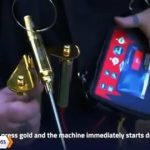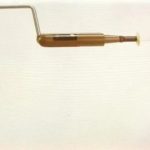Buy Metal Detector: The Ultimate Buying Guide
Are you in the market for a metal detector but not sure where to start? Look no This ultimate buying guide will walk you through all the important factors to consider when purchasing a metal detector. Whether you are a novice or a seasoned detectorist, this guide will help you make an informed decision on where to buy a metal detector that suits your needs. With a wide range of options available on the market, we will explore the different types of metal detectors, features to look for, and popular places to make your purchase. Let’s dig in and find the perfect metal detector for
Where to Buy Metal Detector: The Ultimate Buying Guide is a comprehensive resource that provides information on where to purchase metal detectors. It includes tips on how to choose the right metal detector for your needs, as well as reviews and comparisons of popular models. This guide covers a wide range of retailers, both online and brick-and-mortar, where you can find metal detectors for sale. Whether you’re a beginner or a seasoned pro, this guide will help you find the best place to buy a metal detector.
The Ultimate Guide to Buying a Metal Detector
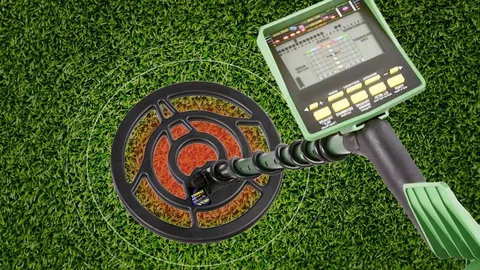
Are you thinking about taking up a new hobby or picking up a lucrative side hustle? Buying a metal detector might be just the thing for you. Whether it’s for treasure hunting, gold prospecting, or just exploring the great outdoors, finding the right metal detector can make all the difference. With so many options available, it can be overwhelming to choose the best one for your needs. To make the process easier, consider where to buy your metal detector, whether it’s online or in-store, as well as the budget and additional gear you may need. As a beginner, it’s essential to do your research on the pros and cons of buying a new or used metal detector and what features to look for before making a purchase. Whether you’re on a budget or ready to invest in a high-end model, there are options out there for every budget and skill level.
The Ultimate Guide to Buying a Metal Detector covers everything from the different types of metal detectors available to the features to look for, and how to choose the best one for your needs. It also provides tips on how to use a metal detector effectively and what to consider when purchasing accessories, such as headphones and digging tools. The guide offers insight into various brands and models, and even includes recommendations for specific budgets and purposes. Whether you are a beginner or an experienced treasure hunter, this guide is designed to help you make an informed decision when purchasing a metal detector.
Top 10 Metal Detectors to Buy for Treasure Hunting
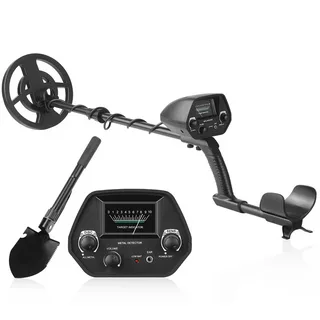
1. Minelab Equinox 800: This versatile and high-performance metal detector offers multiple frequencies and advanced features for detecting a wide range of treasures.
2. Garrett AT Pro: Known for its waterproof design and high sensitivity, the AT Pro is popular for its reliability in various terrains.
3. XP Deus: This metal detector is acclaimed for its lightweight and wireless design, making it easy to use for long periods and in challenging environments.
4. Fisher F75: Highly regarded for its advanced technology and strong discrimination capabilities, the F75 is known for its precision in separating targets.
5. Nokta Makro Simplex+: This affordable yet powerful metal detector offers great depth and accuracy, making it a top choice for beginners and experienced hobbyists alike.
6. Tesoro Vaquero: This high-quality detector is known for its strong performance in mineralized soil and its ability to locate small, deep targets.
7. Whites TreasurePro: With its customizable features and high sensitivity, the TreasurePro is a versatile option for treasure hunters of all levels.
8. Bounty Hunter TK4 Tracker IV: This budget-friendly metal detector offers reliable performance and easy operation, making it an excellent choice for beginners.
9. Teknetics T2: Known for its exceptional depth and target separation, the T2 is a top choice for serious treasure hunters looking for advanced features.
10. Makro Multi Kruzer: This waterproof metal detector offers excellent performance in various environments and is known for its durability and reliability.
How to Choose the Best Metal Detector for Gold Prospecting

When choosing a metal detector for gold prospecting, consider the following factors:
1. Frequency: Look for a metal detector with a higher frequency, as they are more sensitive to smaller gold nuggets.
2. Ground Balance: Opt for a metal detector that offers adjustable ground balance settings, as this will help in filtering out the interference from mineralized soil.
3. Discrimination: Choose a metal detector with good discrimination capabilities to distinguish between valuable targets and junk metals.
4. Sensitivity: Look for a metal detector with adjustable sensitivity settings to find gold nuggets at varying depths.
5. Size and Weight: Consider the size and weight of the metal detector, as you may need to carry it for long periods while prospecting.
6. Waterproofing: If you plan to do gold prospecting near rivers or streams, consider a waterproof metal detector for added durability.
By considering these factors, you can choose the best metal detector for gold prospecting that suits your needs and budget.
Where to Buy the Most Affordable Metal Detectors

There are several places where you can buy affordable metal detectors. Some options include online retailers such as Amazon, eBay, and Walmart. You can also check out specialty stores that sell outdoor and camping equipment, as well as pawn shops or second-hand stores. Additionally, you may want to consider attending trade shows or expos where vendors often offer discounted prices on metal detectors.
Metal Detecting 101: The Essentials of Buying the Right Detector
Metal Detecting 101: The Essentials of Buying the Right Detector is a comprehensive guide for beginners looking to purchase their first metal detector. It covers the different types of metal detectors available, including VLF (Very Low-Frequency) and PI (Pulse Induction) detectors, as well as the features to consider when making a purchase. The book also provides tips for selecting the right detector for specific environments, such as beaches, parks, or rugged terrains. Additionally, it offers advice on how to operate and maintain a metal detector for optimal performance. Overall, the book serves as a valuable resource for those looking to venture into the world of metal detecting.
The Pros and Cons of Buying a Used Metal Detector
Pros of buying a used metal detector include potential cost savings, as used models are typically less expensive than new ones. Used detectors also often come with added accessories, such as coils and headphones, which can further increase the value of the purchase. Additionally, some older models may have features that are no longer available in newer versions, making them desirable for certain users.
Cons of buying a used metal detector may include a shorter lifespan and less advanced technology compared to newer models. There may also be limited or no warranty coverage for used detectors, and they may have wear and tear or damage that is not immediately apparent. Additionally, purchasing a used detector may involve more risk compared to buying a new one, as it may not perform as expected.
Metal Detecting Gear: What You Need to Buy Along with Your Detector
When purchasing a metal detector, you will also need to buy additional gear to enhance your metal detecting experience. Some essential items to consider include a sturdy shovel or digging tool for uncovering buried objects, a pair of durable gloves to protect your hands, a handheld pinpointer to precisely locate targets, a quality set of headphones for clear audio feedback, a carrying case or backpack for transporting your gear, and possibly a harness or belt to distribute the weight of your equipment. Additionally, you may want to invest in a finds pouch to hold and organize your discovered items, a scoop for sifting through soil and sand, and a protective cover or rain gear for your metal detector in case of inclement weather. These accessories can greatly improve your metal detecting outings and help you make the most of your hobby.
Metal Detecting on a Budget: How to Buy a Quality Detector for Less
Metal detecting can be an exciting and rewarding hobby, but it doesn’t have to break the bank. There are several ways to buy a quality metal detector for less. One option is to look for used detectors on online marketplaces or at local metal detecting clubs. Many experienced hobbyists upgrade their equipment regularly, so you may be able to find a gently used detector at a discounted price.
Another option is to consider purchasing an entry-level or beginner-friendly model. These detectors are typically more affordable than advanced models and can still provide a great experience for new hobbyists. Look for models from reputable brands that offer good performance and features for the price.
Additionally, keep an eye out for sales, discounts, and special offers from metal detecting retailers. You may be able to score a great deal on a quality detector by timing your purchase strategically.
Finally, consider factors like warranty, customer support, and included accessories when evaluating the overall value of a metal detector. A slightly higher upfront cost for a new model with a good warranty and customer service may end up being a better long-term investment than a cheaper used model with potential issues. By being strategic and savvy in your purchasing decisions, you can find a quality metal detector that fits your budget.
Buying Your First Metal Detector: Tips for Beginners
Here are some tips for beginners on buying your first metal detector:
1. Research different types of metal detectors to find one that fits your needs and budget. Consider factors such as the type of detecting you want to do (beach, land, underwater), the level of experience you have, and any special features you may want.
2. Read reviews and watch video demonstrations to get an idea of how different metal detectors perform in real-life situations. This can help you make an informed decision before making a purchase.
3. Consider purchasing from a reputable dealer or manufacturer that offers a warranty and customer support. This can provide peace of mind and assistance if you encounter any issues with your metal detector.
4. Take the time to learn how to properly use your metal detector, including understanding its settings and features. Practice in different environments to gain experience and improve your detecting skills.
5. Consider joining a metal detecting club or online community to connect with experienced detectorists who can offer advice and guidance as you begin your journey in the hobby. Learning from others can help you avoid common mistakes and improve your success in finding valuable items.
By considering these tips, you can make a more informed decision when buying your first metal detector and set yourself up for a successful and enjoyable experience in the hobby of metal detecting.
The Best Places to Buy Metal Detectors Online and In-Store
When it comes to buying metal detectors, some of the best places to shop online include websites like Amazon, eBay, and Kellyco Metal Detectors. These websites offer a wide variety of metal detectors from various brands and price points, as well as user reviews to help guide your purchase decision.
For those who prefer to shop in-store, popular options include specialty stores such as The Metal Detector Shop, MetalDetector.com, and Detector Electronics Corp. These stores often have knowledgeable staff who can provide expert advice on selecting the right metal detector for your needs.
Ultimately, the best place to buy a metal detector will depend on your personal preferences and shopping habits. Whether you choose to buy online or in-store, be sure to do your research and read customer reviews to ensure you’re getting the best quality product for your money.
Navigating the World of Metal Detectors: A Buyer’s Guide
Navigating the World of Metal Detectors: A Buyer’s Guide offers comprehensive information on choosing the right metal detector for your needs. Whether you’re a beginner or an experienced user, this guide provides valuable insights into different types of metal detectors, their features, and capabilities. It helps users make informed decisions by discussing important factors to consider when purchasing a metal detector, such as frequency, sensitivity, discrimination, and ground balance. The guide also includes tips on where to buy metal detectors and how to properly use and maintain them. With this buyer’s guide, individuals can navigate the complex world of metal detectors with confidence and make the best choice for their metal detecting endeavors.
The Dos and Don’ts of Buying a Metal Detector
The dos of buying a metal detector include doing thorough research on different models and types of detectors, considering your budget and the features you need, and reading reviews from other users. It’s also important to consider the type of detecting you will be doing and the environment in which you will be using the detector.
On the other hand, the don’ts of buying a metal detector include avoiding impulsive purchases without doing proper research, overlooking the warranty and customer support offered by the manufacturer, and disregarding the opinions and experiences of other metal detector users. Avoid buying a detector that is not suitable for the type of detecting you plan to do or that lacks essential features for your needs.
The Best Metal Detector for Your Specific Needs
When choosing a metal detector, it’s important to consider the specific features you need based on the type of metal detecting you plan to do. For gold prospecting, a detector with a high frequency and sensitive to small gold nuggets would be ideal. For relic hunting, a detector with good discrimination to distinguish between trash and valuable items is important. For beach hunting, a waterproof detector with sand capabilities is essential. It’s also important to consider the weight and balance of the detector for long periods of use. Researching the different models and their specific features will help you find the best metal detector for your specific needs.
Finding the Right Metal Detector for You: A Step-by-Step Guide
Finding the Right Metal Detector for You: A Step-by-Step Guide is a comprehensive resource that helps individuals navigate the process of choosing the best metal detector to suit their needs. The guide covers important factors to consider such as budget, intended use, and features to look for in a metal detector. It provides step-by-step instructions for evaluating different models and brands, as well as tips for making an informed decision. Whether you’re a beginner or an experienced detectorist, this guide can assist you in finding the perfect metal detector for your specific requirements.
Making a Sound Investment: Buying the Perfect Metal Detector
Making a sound investment in a metal detector requires careful consideration of several factors. First, determine the type of metal detecting you plan to do, such as coin shooting, relic hunting, or gold prospecting. Next, research different models and their features, such as adjustable sensitivity, discrimination settings, and waterproof capabilities. Consider your budget and choose a detector that offers the best value for your money. Finally, read reviews and seek recommendations from experienced metal detector enthusiasts before making your purchase. By taking the time to choose the perfect metal detector, you can ensure a sound investment that will provide years of enjoyable and successful metal detecting.
Discovering the Treasures of Metal Detecting: A Beginner’s Guide
Discovering the Treasures of Metal Detecting: A Beginner’s Guide is a comprehensive book that provides all the necessary information for newcomers to the hobby of metal detecting. It covers topics such as choosing the right equipment, understanding different types of metal detectors, identifying potential locations for successful treasure hunting, and proper techniques for digging and recovering targets. The book also delves into the history of metal detecting and provides practical tips for maximizing success. Whether you are interested in exploring the great outdoors or uncovering valuable artifacts, this guide is an essential resource for anyone looking to start their metal detecting journey.
Avoiding Common Mistakes When Buying a Metal Detector
When buying a metal detector, it’s important to avoid common mistakes that could lead to dissatisfaction with your purchase. Some key things to keep in mind include researching the type of metal detector that best suits your needs, considering the level of experience you have with metal detecting, and paying attention to the quality of the detector’s build and performance. Additionally, it’s essential to avoid being swayed by extravagant marketing claims or purchasing a detector solely based on its price. Taking the time to carefully consider these factors can help you make an informed decision and maximize your metal detecting experience.
The Ins and Outs of Buying a High-Quality Metal Detector
Buying a high-quality metal detector can be a significant investment, so it’s important to do your research and consider a few key factors before making a purchase. Some important things to consider include the type of detecting you’ll be doing (such as gold prospecting, relic hunting, or beach hunting), the features you’ll need (such as discrimination, ground balance, and target depth), and the level of experience you have with metal detecting. Additionally, it’s crucial to consider the build quality and durability of the metal detector, as well as the warranty and customer support offered by the manufacturer. Finally, reading reviews and seeking recommendations from other metal detector enthusiasts can provide valuable insights into the best options available on the market.
Metal Detecting Essentials: What to Look for When Buying a Detector
When buying a metal detector, it is important to consider the following factors:
– Type of detector: There are various types of metal detectors available, including VLF (Very Low Frequency), PI (Pulse Induction), and BFO (Beat Frequency Oscillation) detectors. Each type has its own strengths and weaknesses, so it’s important to choose the right type for your specific needs.
– Frequency: The frequency of a metal detector refers to the number of times the signal is transmitted and received in one second. Higher frequencies are better for detecting smaller objects, while lower frequencies are better for larger objects and greater depth.
– Coil size and shape: The size and shape of the coil can greatly affect the performance of a metal detector. Larger coils can cover more ground and detect objects at greater depths, while smaller coils are better for more precise searching in tight spaces.
– Sensitivity and depth: The sensitivity of a metal detector determines how well it can detect different types of metals, while depth refers to how far down the detector can detect objects. Look for a detector with adjustable sensitivity and depth settings to customize your search experience.
– Discrimination and ground balance: Discrimination allows the detector to ignore certain types of metals, while ground balance helps the detector adjust to different soil conditions. Both of these features can greatly enhance the accuracy and effectiveness of a metal detector.
– Additional features: Consider other features such as waterproofing, adjustable stem length, and headphone compatibility, depending on your specific needs and preferences. These additional features can greatly enhance the usability and versatility of a metal detector.
Amateur or Professional? Choosing the Right Metal Detector for You
When choosing a metal detector, it’s important to consider whether you are an amateur or a professional in the field. Amateur metal detectors are generally simpler to use and less expensive, making them perfect for beginners or hobbyists. They are designed to be user-friendly and are great for casual use.
On the other hand, professional metal detectors are often more advanced, with additional features and capabilities. These detectors are typically used by seasoned treasure hunters, archaeologists, or experienced metal detecting enthusiasts who require a higher level of performance and functionality.
When selecting the right metal detector for you, it’s important to assess your level of experience and the specific purpose for which you will be using the detector. Consider factors such as the type of terrain you will be searching, the level of discrimination and sensitivity you require, as well as your budget. By carefully evaluating your needs and expertise, you can make an informed decision when choosing the perfect metal detector for your individual requirements.




